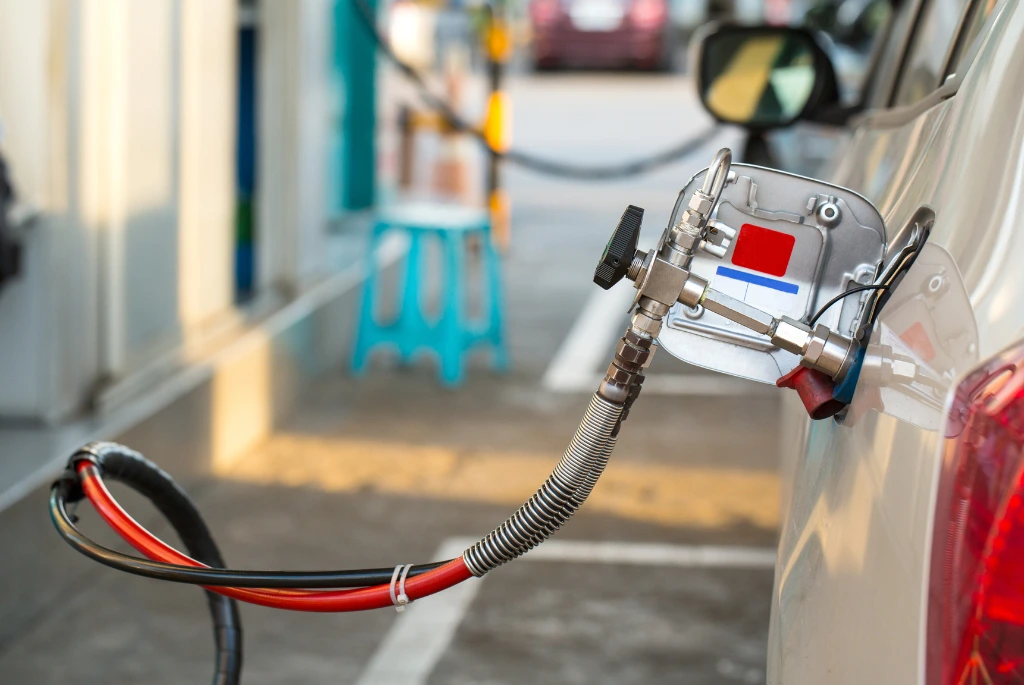
If you are planning to switch to a CNG (Compressed Natural Gas) car, we guess you love the lower fuel costs and the greener environmental impact. But let’s be honest, CNG cars have their own pros and cons. While they are budget-friendly and eco-conscious, they are not always as smooth sailing as expected. From excessive gas consumption to CNG cylinder leaks, these cars have a few common issues that could leave you scratching your head. In this article, we have shared a list of common CNG car problems that will help you to gain some awareness about CNG cars. Read this article before you actually switch to a CNG vehicle impulsively.
List of Common CNG Car Problems

CNG cars are generally reliable and offer environmentally friendly, cost-effective alternatives to petrol vehicles. However, like any vehicle, they can experience some problems due to their fuel system, engine modifications, and CNG-related components. Here’s a list of common CNG car problems:
CNG Cylinder Leaks
Over time, the CNG cylinders may develop leaks due to wear, corrosion, or manufacturing defects. This is a serious threat and one must take a prompt action to address this issue immediately.
Fuel Pressure Regulator Failure
This component ensures the proper gas flow to the engine. A faulty regulator can cause power loss, engine misfires, or stalling.
CNG Car Pickup Problems
CNG is a cleaner-burning fuel, but it can sometimes result in a slight loss of engine power compared to petrol. This is often more noticeable when the car is running on CNG.
CNG Car Starting Problems
CNG cars may have difficulty starting, particularly in cold weather. This could be due to various issues, including a problem with the fuel delivery or the regulator.
Also Read: Can I Convert my Diesel Car to CNG?: Let’s Find Out
CNG Conversion Kit Problems Such as Outdated or Faulty Pressure Sensors
CNG systems use pressure sensors to monitor and control the gas flow. If these sensors malfunction, they can affect the vehicle’s performance and safety.
Fuel Switching Problems
If your CNG vehicle is a dual-fuel model, there may be issues with switching from gasoline to CNG. This could be due to a malfunctioning switch-over valve, a faulty sensor, or an issue with the fuel management system.
Excessive Gas Consumption
If the CNG system is not calibrated properly, it can result in excessive fuel consumption, reducing the vehicle’s range and cost-effectiveness.
Exhaust System and Emissions Issues
CNG burns cleaner than gasoline, but carbon buildup in the catalytic converter can still occur, leading to decreased engine performance and higher emissions.
Car Battery Voltage CNG Problem
CNG cars may have a higher voltage demand, especially if the car relies on electric systems to monitor or control the CNG system. A weak or faulty battery could result in difficulty starting the vehicle or other electrical issues.
Fuel System Maintenance Issues
CNG fuel contains impurities that can clog filters over time. If the filters are not replaced or cleaned, they can cause fuel delivery problems, reducing engine performance.
CNG Car Cold Start
In extremely cold weather, CNG storage pressure may drop, causing difficulty in fuel delivery to the engine. This may result in stalling or rough running in colder temperatures.
System Overheating
The CNG regulator may overheat if the system is under high pressure or malfunctioning. This may lead to issues with performance and potential failure.
While CNG vehicles are a great option for those looking for a cleaner and more economical vehicle, it’s important to be aware of these common CNG car problems and have regular maintenance done on the system to ensure your vehicle remains in good condition for several years.


